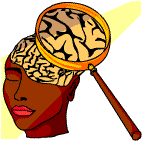Personality Theories
Created | Updated Mar 12, 2002
The Turn of the 19th Century:
A virtual unknown in Austria hypnotises yet another female patient and proceeds
to rummage deep through her past. She is suffering from hysteria, and for the first time in
history, a man believes it's all in her mind; or at least for the first time in history, he dares
say so. This man dares to speak out in a Victorian society, and plunge deep into the human
psyche. He comes up with numerous theories - one of which explains the concept of an
unconscious mind - and calls it the psychodynamic theory. He would have been ridiculed...
if anyone had noticed.
The Turn of the 20th Century:
The average psychoanalyst makes $300 an hour.

Quite simply put, personality theories try to explain why we think what we think. Interestingly enough, no one had really verbalised their ideas about this until Sigmund Freud in 1898, and it took a cocaine addiction and lots of failed careers to get him to do it.
Not as simply put, personality theories try to explain our overall demeanour, likes and dislikes, etc. as well as any specific radical behaviour, especially if this behaviour is very out of the ordinary or detrimental to society or ourselves, and see if there is a way to correct such behaviour. Sigmund started the trend with the belief that by bringing suppressed memories of what affected his patients to the surface, it would no longer torture their unconsious and cause them to go mad.
Since then this subject - also roughly the idea of psychology in general - has consumed the world, not to mention a good chunk of the world's money. Five distinct personality theories have been developed in the last 100 years, as illustrated below. By clicking the link provided, they are explained in more depth.
I'd like to know why, the other day, I had this random thought:
I'm a bit hungry. I'd like to eat a carrot.
The various theories would explain this seemingly unimportant thought as follows:
Behaviouristic Theory
As a child, you received positive verbal reinforcment for eating a carrot, and still expect such positive factors to happen if you continue such behaviour.Cognitive Theory
You try to satisfy your hunger while at the same time making youself content knowing the carrot is healthy and good tasting.Humanistic Theory
You are exercising your freedom as an individual by choosing a carrot because it makes you feel good, and it fulfills one of the most basic human needs. And you are a good person.Trait Theory
You can either prefer carrots or broccoli. Because you prefer carrots, you are an outgoing, creative person.Psychodynamic Theory
You are trying to suppress your hidden cravings for violence and sex by sublimating your energy into random thoughts, although some unconscious "id" needs are being shown - after all, a carrot is a phallic symbol.
